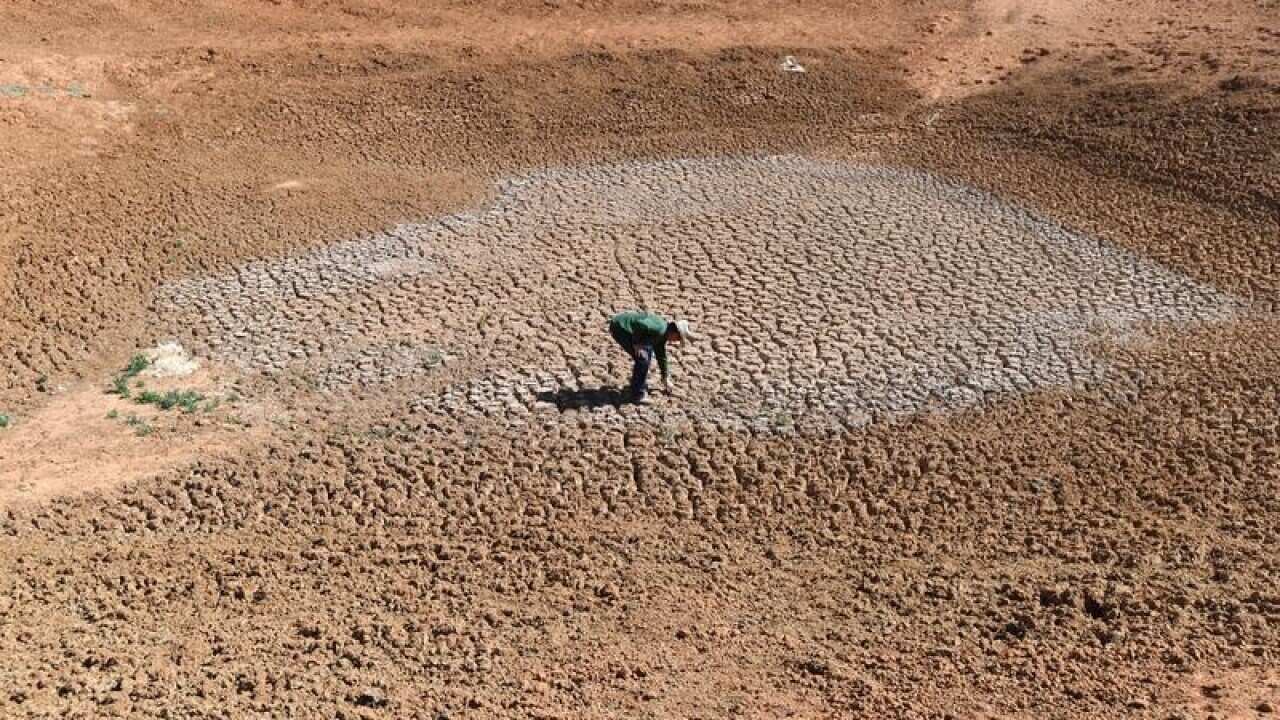Australian farmers can expect global appetite for their produce to grow throughout 2019, but the nation's $60 billion agriculture sector faces mounting climate fears and bleak economic forecasts.
In its Agribusiness Outlook 2019 report, food and agri-banking specialist Rabobank says the Australian farm sector should enjoy rising offshore demand and improved market access over the next five years, while also reaping the benefits of increased investment.
However, lead researcher Tim Hunt warns that an ongoing east coast drought and a slowing global economy would prove significant headwinds.
"Murray Darling Basin water storage levels are low and pasture is in poor condition in many grazing regions," he said.
"For winter production to return to average on the east coast this season, above-average rainfall is required in coming months ... at present, climate indicators provide mixed signals as to whether that is likely or not."
Mr Hunt said economic pressure would mount as Australian consumers face a house price correction and a likely mortgage rate rise, with wage growth also stagnant.
The global economic outlook is also worrying, he said.
"What concerns us most in 2019 is not so much the likely path for the global economy - which is less favourable than 2018, but not bad - but the risk something worse may eventuate," Mr Hunt said.
He said the slowdown in the Chinese economy was a particular concern, while Brexit and the risk of a "calamitous exit" of the UK from the EU was also looming large.
"A no-deal departure would have a heavy impact in two key markets for Australian agricultural products," he said.
The potential of both a worsening or a resolution of the US-China trade war also brought its own set of risks.
"These include flow-on impacts on consumption from a possible US recession if the trade war escalates, or indeed a resolution that favours US agriculture at the expense of Australia," he said.
Rabobank's report says global wheat prices will come under pressure during the second half of 2019.
New Australian crop supply in the fourth quarter of the year will soften local prices, but above-average basis will persist as drought-affected local stores are restocked.
In an otherwise supportive outlook for grains and oilseeds, a significant bear factor lurks for barley, with an anti-dumping investigation by China into Australian barley exports hanging over the industry's head.
There will be ongoing pressure on dairy supply chain margins, with hopes for a better pasture season ahead in 2019-20.
Meanwhile, beef production is down and prices are steady as the sector waits for rain, while sheepmeat prices are expected to stay strong as production eases after a high slaughter year.

